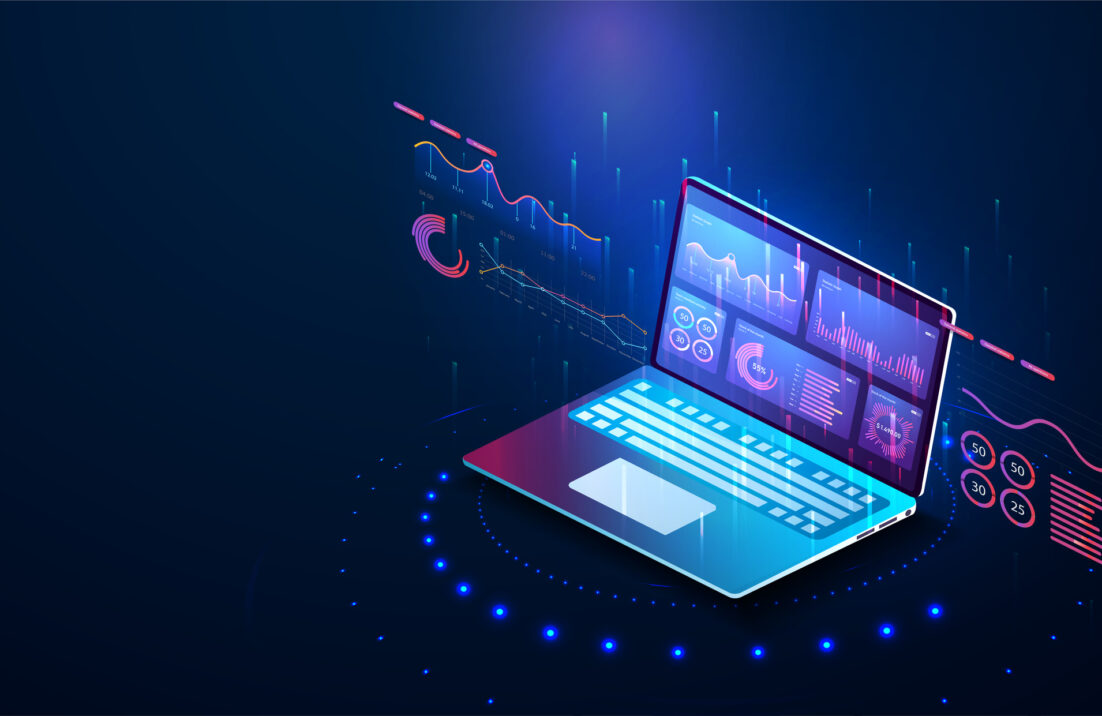 2018 was a breakout year for AI and machine learning. Practically every vendor has or is working on an AI story, and businesses are looking for the easiest ways to embrace and benefit from the technology as soon as possible to maintain their competitive edge. There have been some amazing and eye-opening stories throughout the year that hint at the future: Google Duplex and an AI assistant making appointments at local businesses over the phone, NVIDIA AI creating faces of fake humans, AI beating doctors in diagnosing cancer, and facial recognition at concerts to catch stalkers. The good news is that we are nowhere near Skynet, and we won’t be there for quite some time, if ever. But the line between hype and reality is starting to blur and 2019 will be a year of applicability, shifting from hype to real-world usage.
2018 was a breakout year for AI and machine learning. Practically every vendor has or is working on an AI story, and businesses are looking for the easiest ways to embrace and benefit from the technology as soon as possible to maintain their competitive edge. There have been some amazing and eye-opening stories throughout the year that hint at the future: Google Duplex and an AI assistant making appointments at local businesses over the phone, NVIDIA AI creating faces of fake humans, AI beating doctors in diagnosing cancer, and facial recognition at concerts to catch stalkers. The good news is that we are nowhere near Skynet, and we won’t be there for quite some time, if ever. But the line between hype and reality is starting to blur and 2019 will be a year of applicability, shifting from hype to real-world usage.
So what’s to come in 2019…
First and foremost, organizations will continue to embrace AI, and all the technology that falls under its umbrella, including machine learning and deep learning, whether as an embedded feature of an IT product, or by leveraging a specialized infrastructure to support a custom use case that incorporates model creation, training, tuning, inference, etc. AI has the potential to be the most pervasive technology in our lifetime and organizations will prioritize solutions that incorporate AI to yield benefits such as improving operational efficiency, better protecting against cybersecurity threats, and improving customer satisfaction.
One of the keys to AI being successful is leveraging a lot of data and ensuring that data is of high quality. The challenge is that organizations either don’t have enough data or they have the data, but it’s not of high enough quality or properly integrated. This brings me to my second prediction. The availability of massive data sets to the public will likely explode. Now don’t get me wrong: There are already entities that provide free data sets to the public for training, like Kaggle for example, but I believe companies will begin forming based solely on the promise of offering clean and high-quality data sets to support AI initiatives.
Whether already leveraging AI or planning to over the next year, a big issue emerging right now is around AI ethics. Where should AI be leveraged? Should there be limits imposed on AI systems? How can an organizations or a person trust a result or insight from AI? Who is policing the use of AI? To that end, I predict that trust and transparency will be a growing focal point throughout the year, but to get there, the focus should first be on explainability, i.e., how AI came up with an answer, a conclusion, a prediction, etc. This is especially challenging when leveraging deep neural networks with multiple layers, with each layer relying on another. In 2019, organizations must be accountable for their actions based on guidance from AI and therefore the emergence of tools and technologies that help with transparency into how AI decisions are made will be essential. And just to be clear, some use cases will likely be unable to provide complete transparency due to the complexities of AI getting to their decision, but some insight based on the data and the conclusions will become a requirement for businesses, and more importantly, for customers to trust AI outcomes.
Going hand in hand with explainability is AI bias. AI bias will start being be viewed as a neutral term (as opposed to a negative), since I would argue that bias is the point of AI. Organizations will look to uncover flaws in their own organizations to become better. That means better internally with business practices, data workflows, processes, and data sets, as well as externally in creating the right high quality products for the right audiences to improve customer satisfaction.
My final prediction is around the rise (and fall) of the data scientist. Throughout 2018 we’ve heard a lot about skills gaps when it comes to AI, especially around the shortage of data scientists. In 2019 the importance of having a data scientist will be diminished, as organizations will consume the technology with or without a data scientist. The majority of data scientists will be consumed by larger organizations and vendors, who will work to create simplified tools and solutions, as well as professional services to empower generalists, reduce time to value, and truly democratize AI.
Buckle up. It’s going to be a great year for AI.






